-
The month of DrupalFest
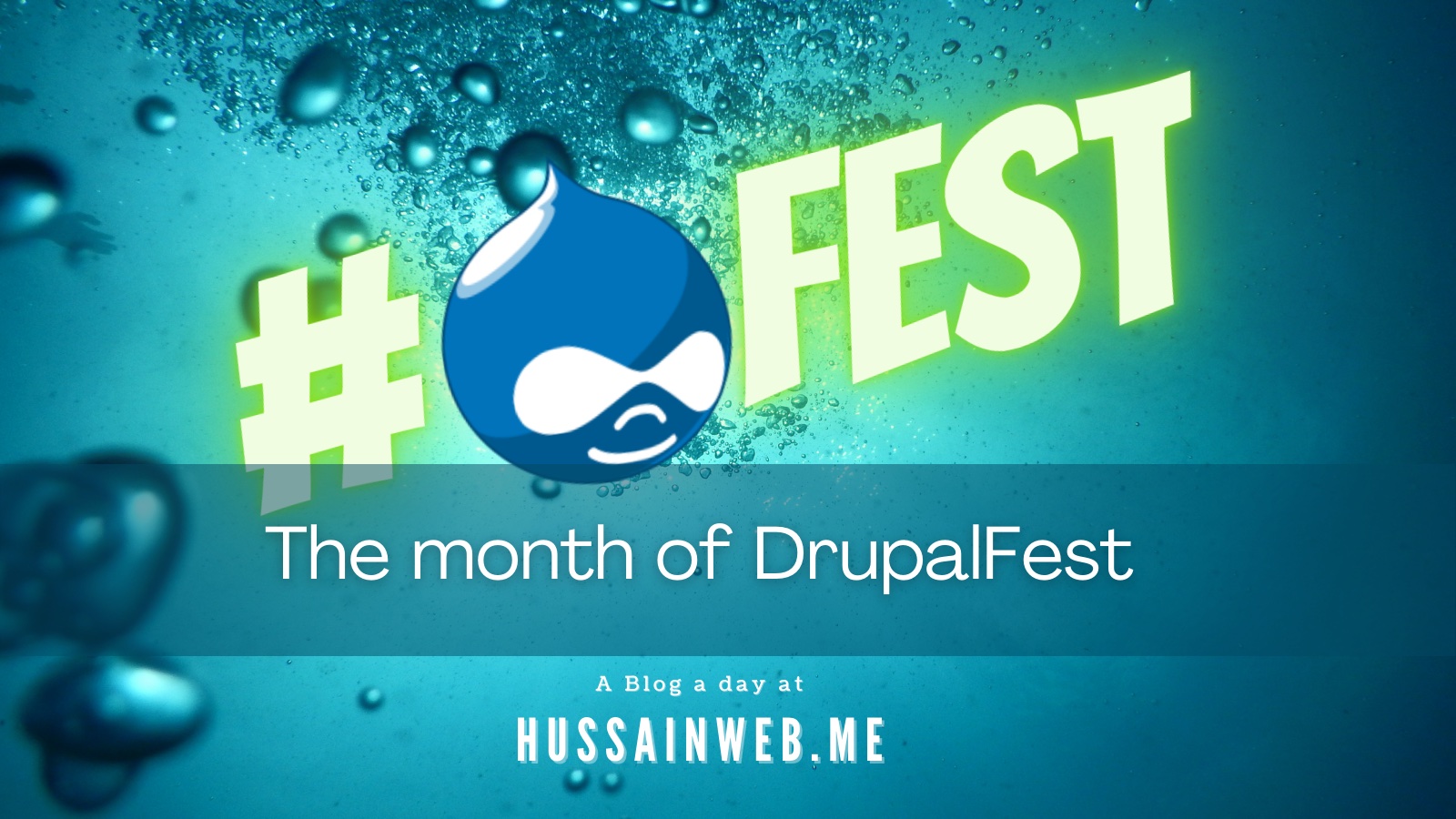
I began writing this series of posts on April 1st, 2021 to celebrate DrupalFest, Drupal’s 20th year. When I started, I was not sure I would be able to write something every day. For one thing, April would not have been the best time for me considering my personal challenges. I didn’t even think of…
-
What I want to see in Drupal’s Future
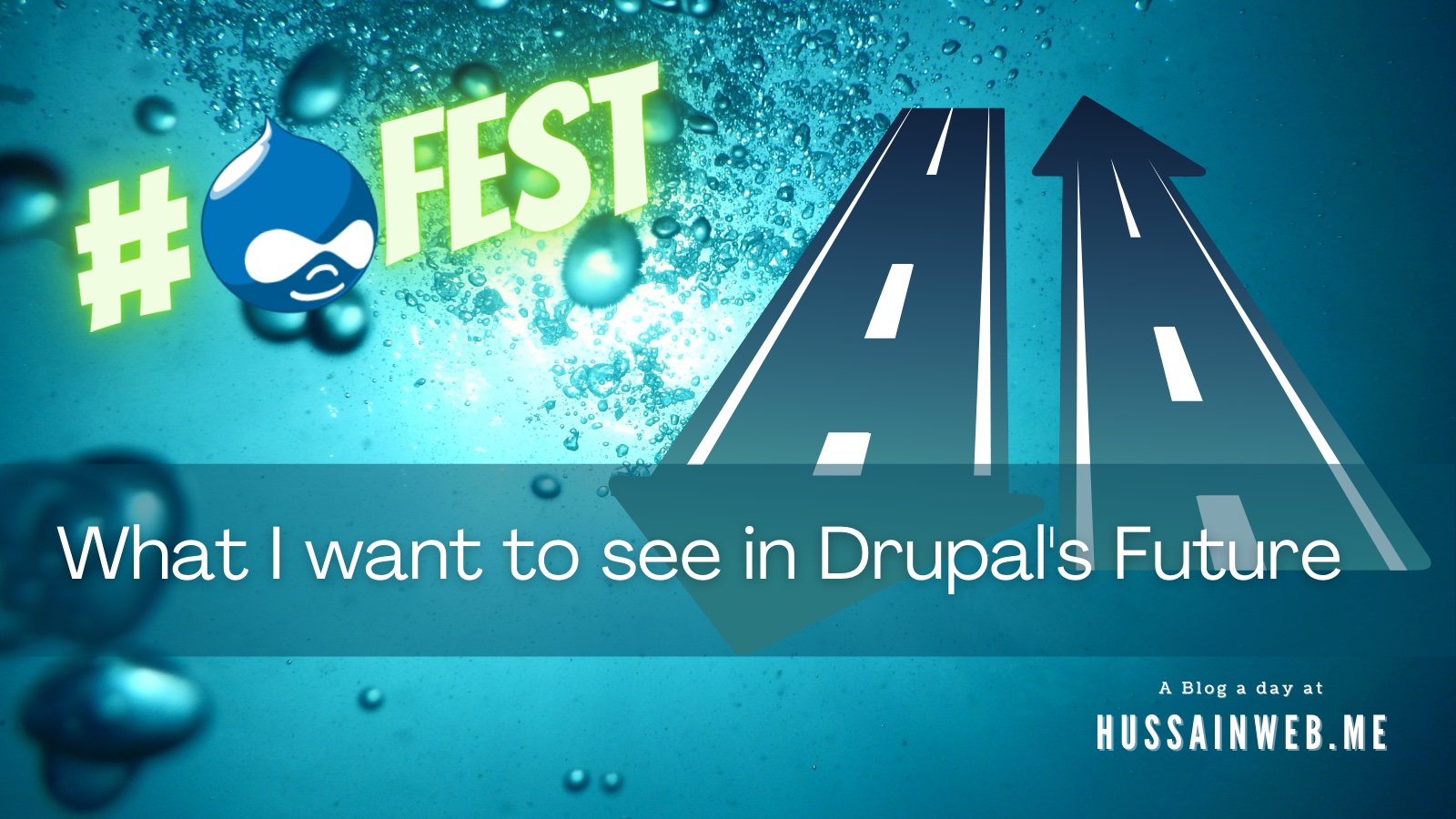
This DrupalFest series of posts is about to end and I thought that a fitting end would be to talk about the future of Drupal. I have already written a bit about this in my previous post: what I want to see in Drupal 10. However, this post is more aspirational and even dream-like. Some…
-
Understanding overridden configuration in Drupal
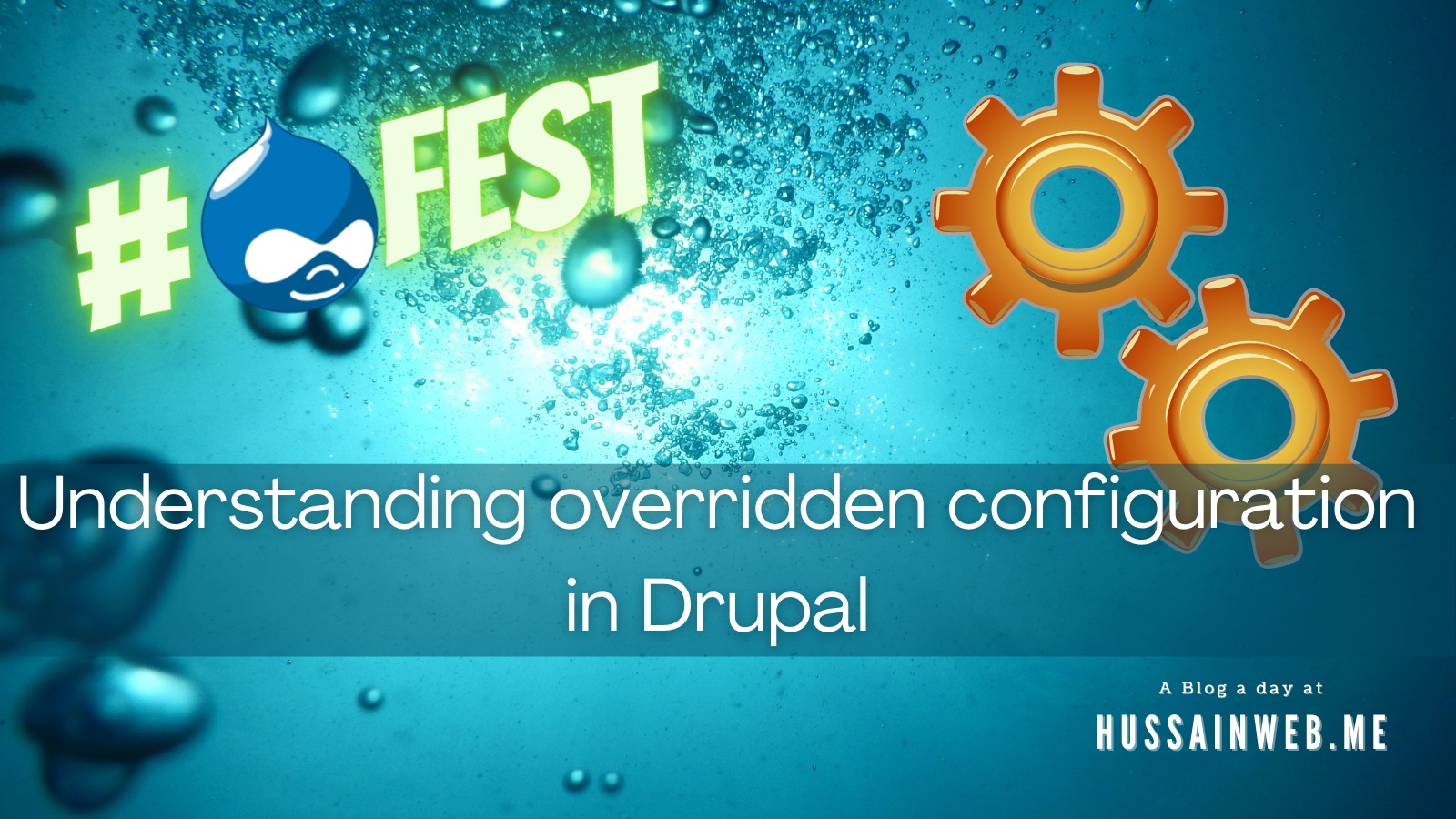
The configuration API is one of the major areas of progress made in Drupal 8. It addresses many challenges of managing a site across environments for Drupal 7 and before. It’s not perfect. After all, it’s just version 1 and there is work going on in CMI 2 to fix the problems in the current…
-
A Drupal Developer’s Tech Stack… continued
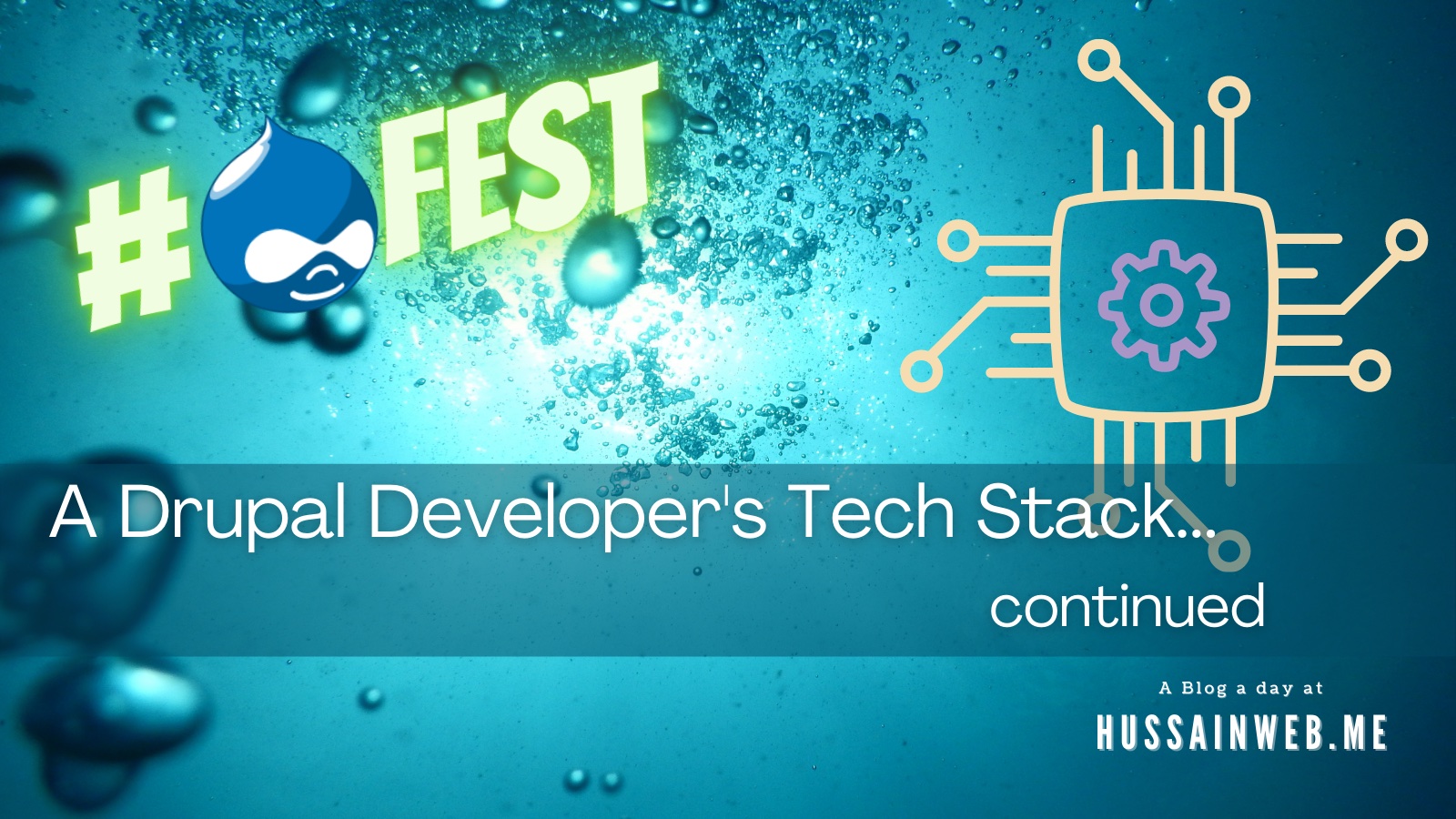
Just as I published yesterday’s article on the tech stack, I realized that I missed a few important things. I had said that the list was only a start, so I think it is fitting to continue it today. As such, today’s post won’t be as long as yesterday’s or even as long as my…
-
A Drupal Developer’s Tech Stack
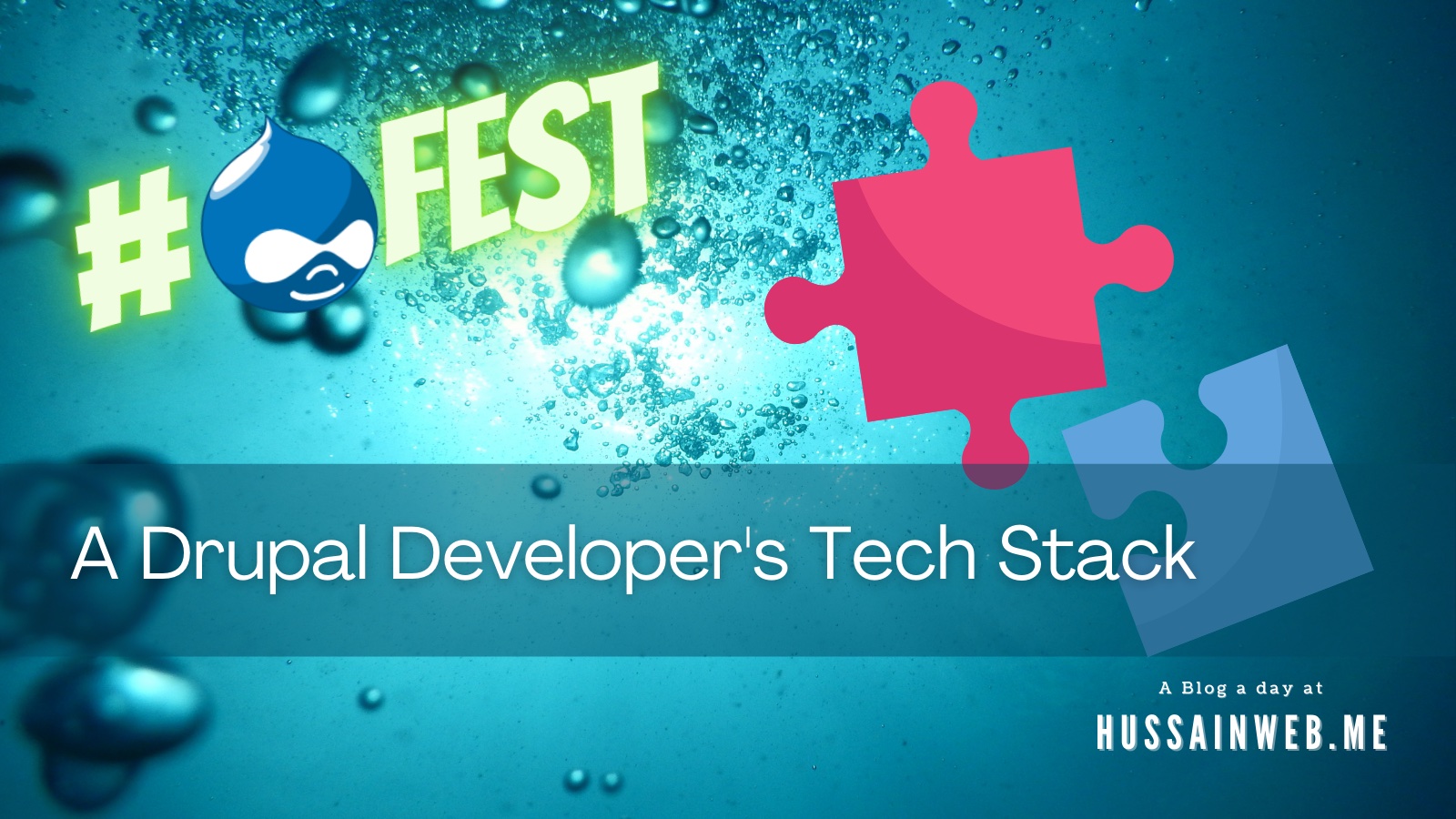
The title of this post is not really accurate, but I can’t think of another way to say it. This post is related to my earlier one on what a Drupal Developer does day-to-day. Here, I will talk about some of the skills required of a Drupal developer. I am not aiming for completeness in…
-
Remote Drupal Development
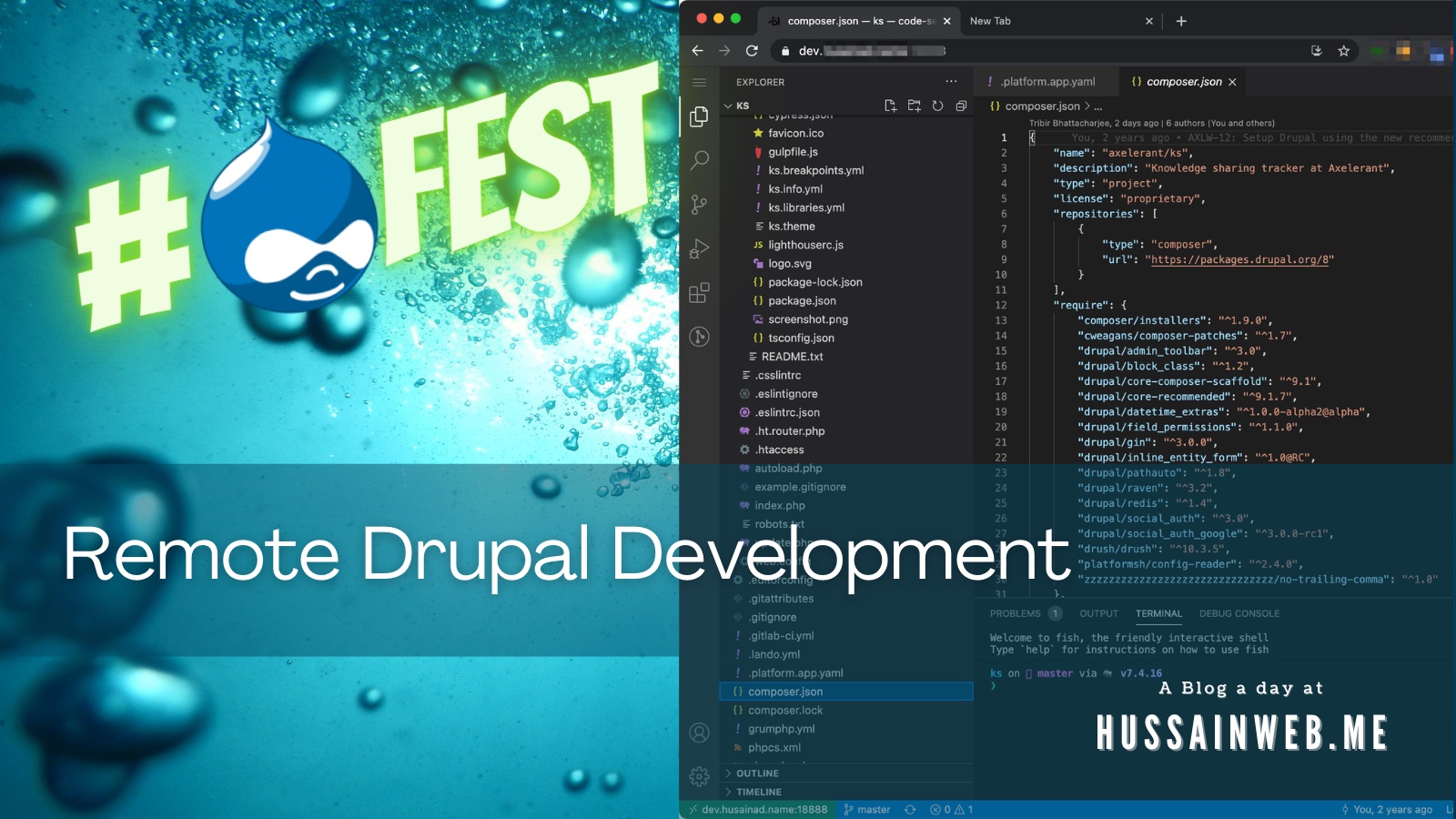
Over the years, I have significantly lesser time for development and an increasing need to move around. After dealing with back-pain due to the weight of my Dell laptop while travelling for conferences, I bought a 15″ MacBook Pro. More recently, with the issues with Docker performance on Mac, I have been thinking of getting…
-
Altering forms in Drupal: a workable mixed approach
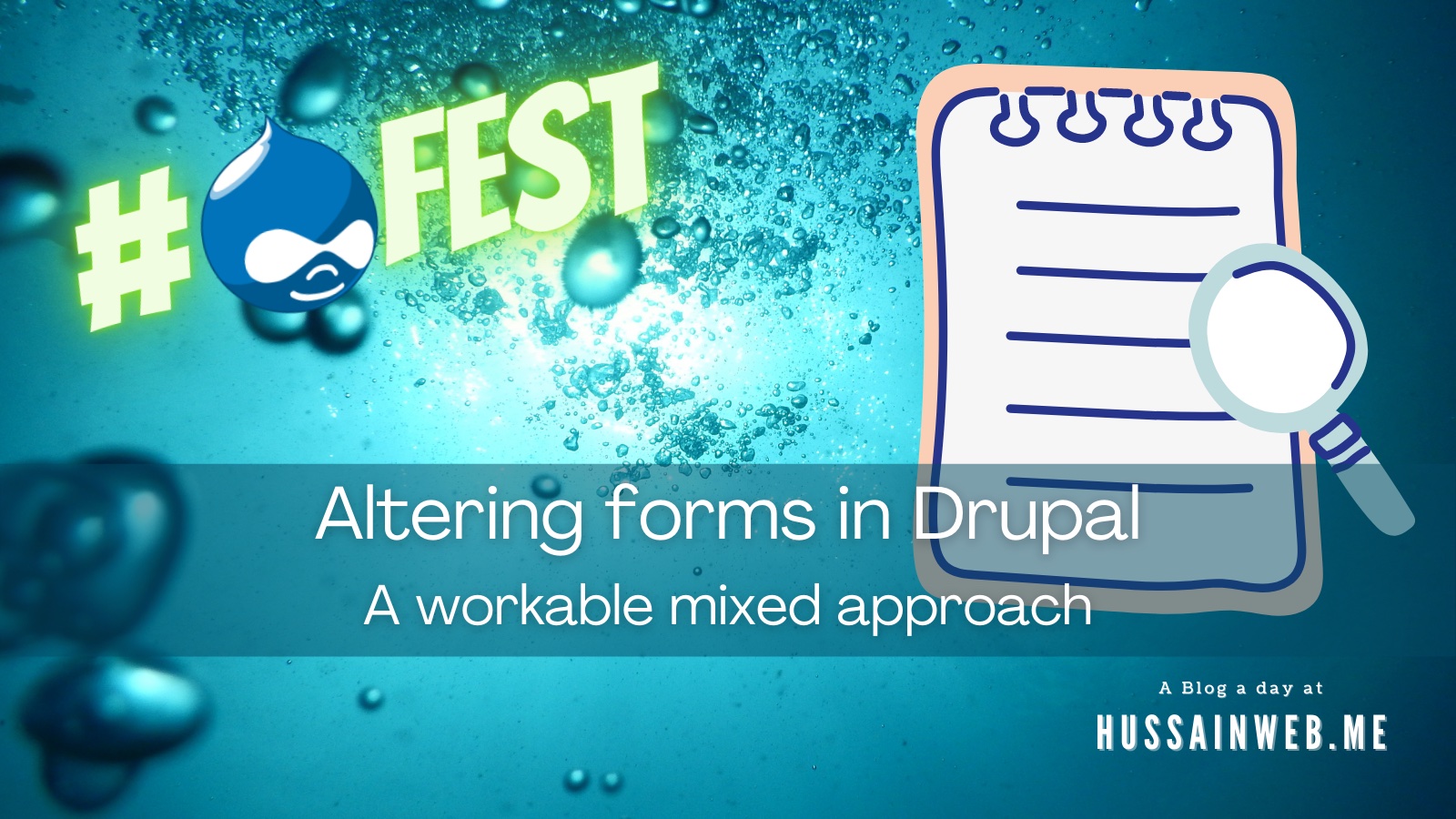
I thought I was done with the series of posts on object-oriented programming after my last one. Of course, there is a lot we can write about object-oriented programming and Drupal, but that post covers everything noteworthy from the example. There is a way which is old-school but works as it should and another which…
-
Altering forms in Drupal: Comparing hooks and object-oriented approaches
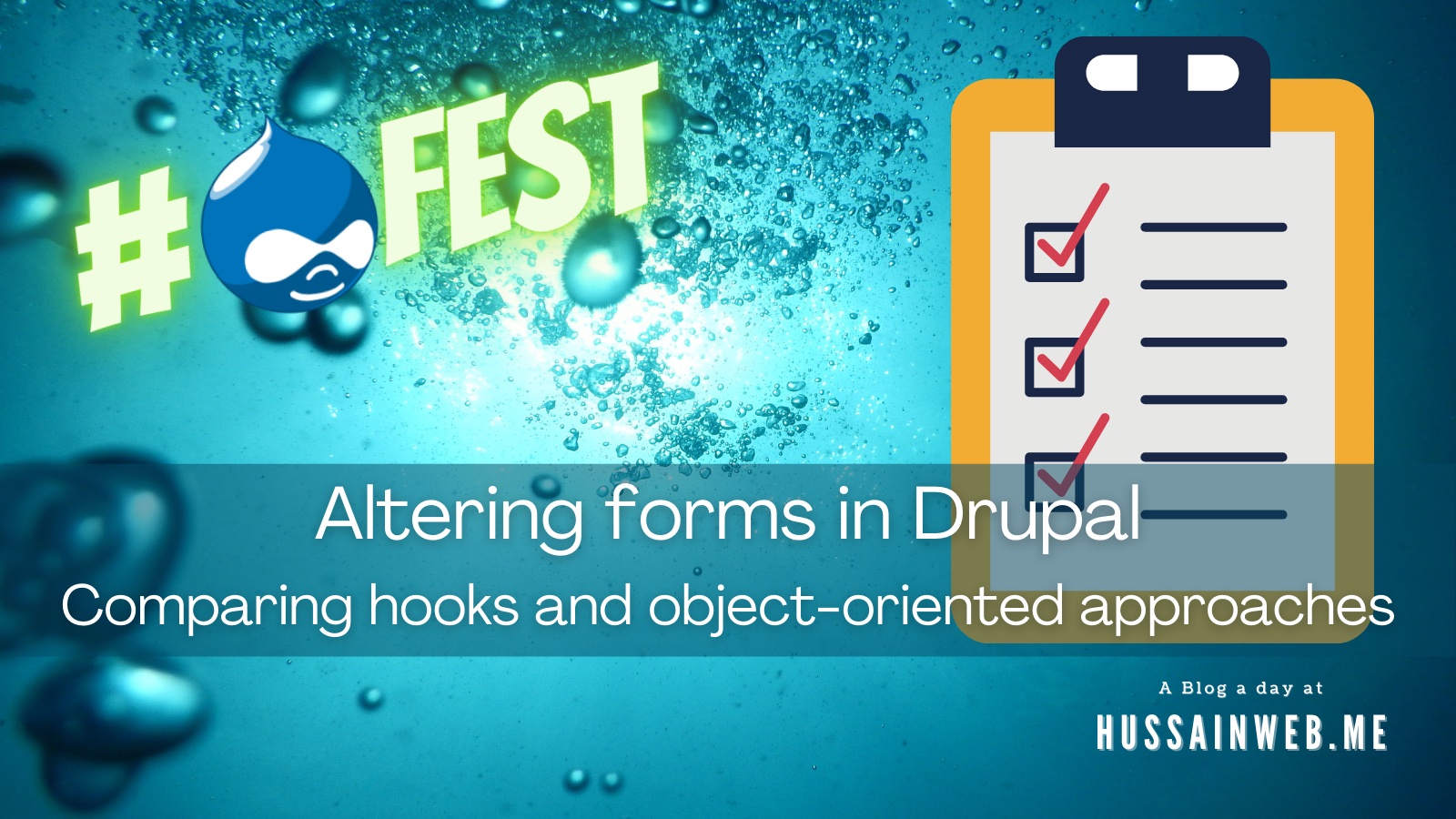
I previously wrote about how the object-oriented style of programming can be seen as a solution to all programming problems. There is a saying: if all you have is a hammer, everything looks like a nail. It is not a stretch to say that object-oriented programming is the hammer in this adage. That post was…
-
How I contribute to Drupal (my workflow)
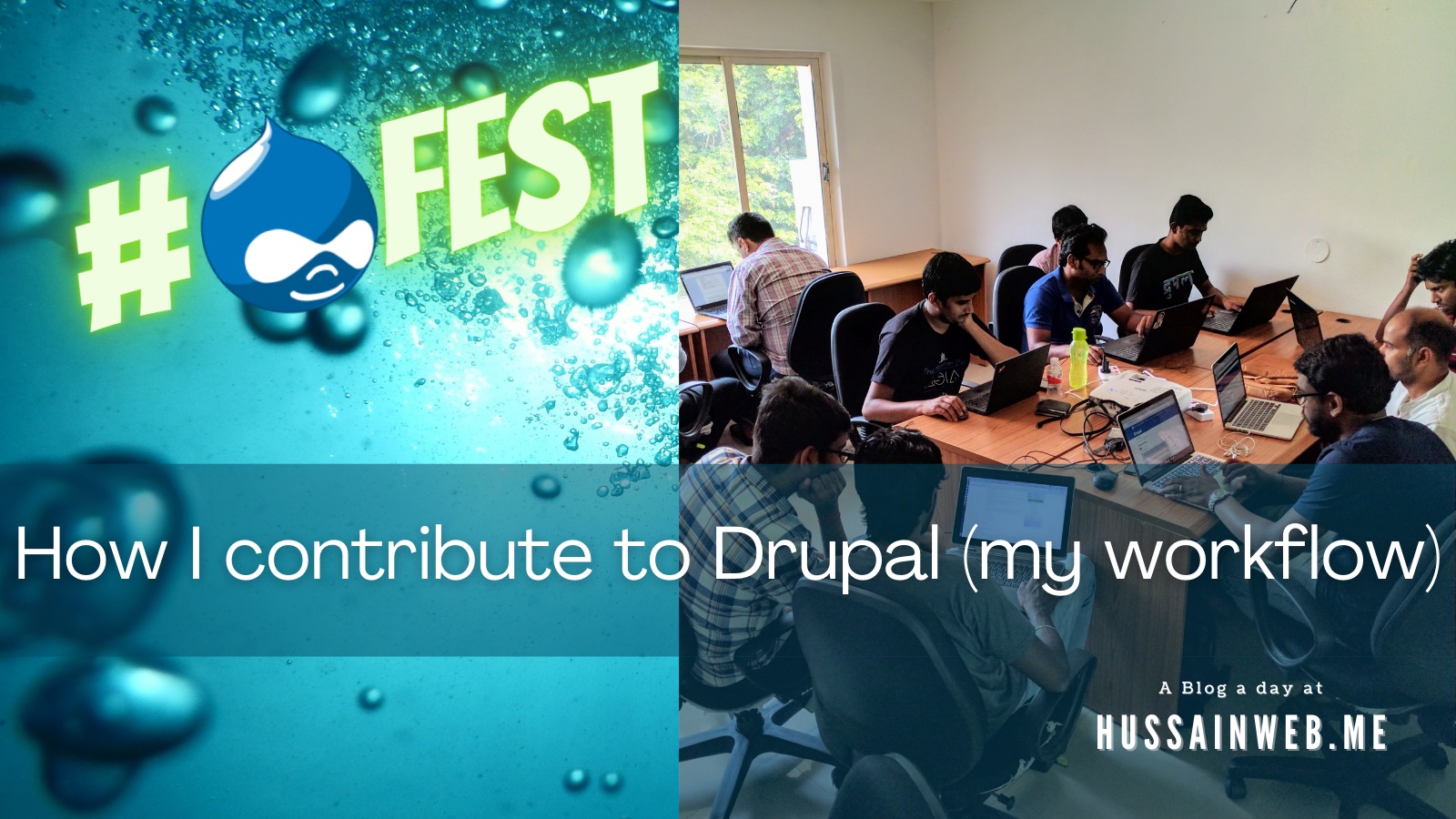
I have been contributing to Drupal in a few different ways for a few years now. I started off by participating in meetups, and then contributing to Drupal core whenever I found time. Eventually, I was even contributing full-time courtesy of Axelerant, my employer. At the same time, I started participating in events outside my…
-
Tracking Drupal (and open source) contributions
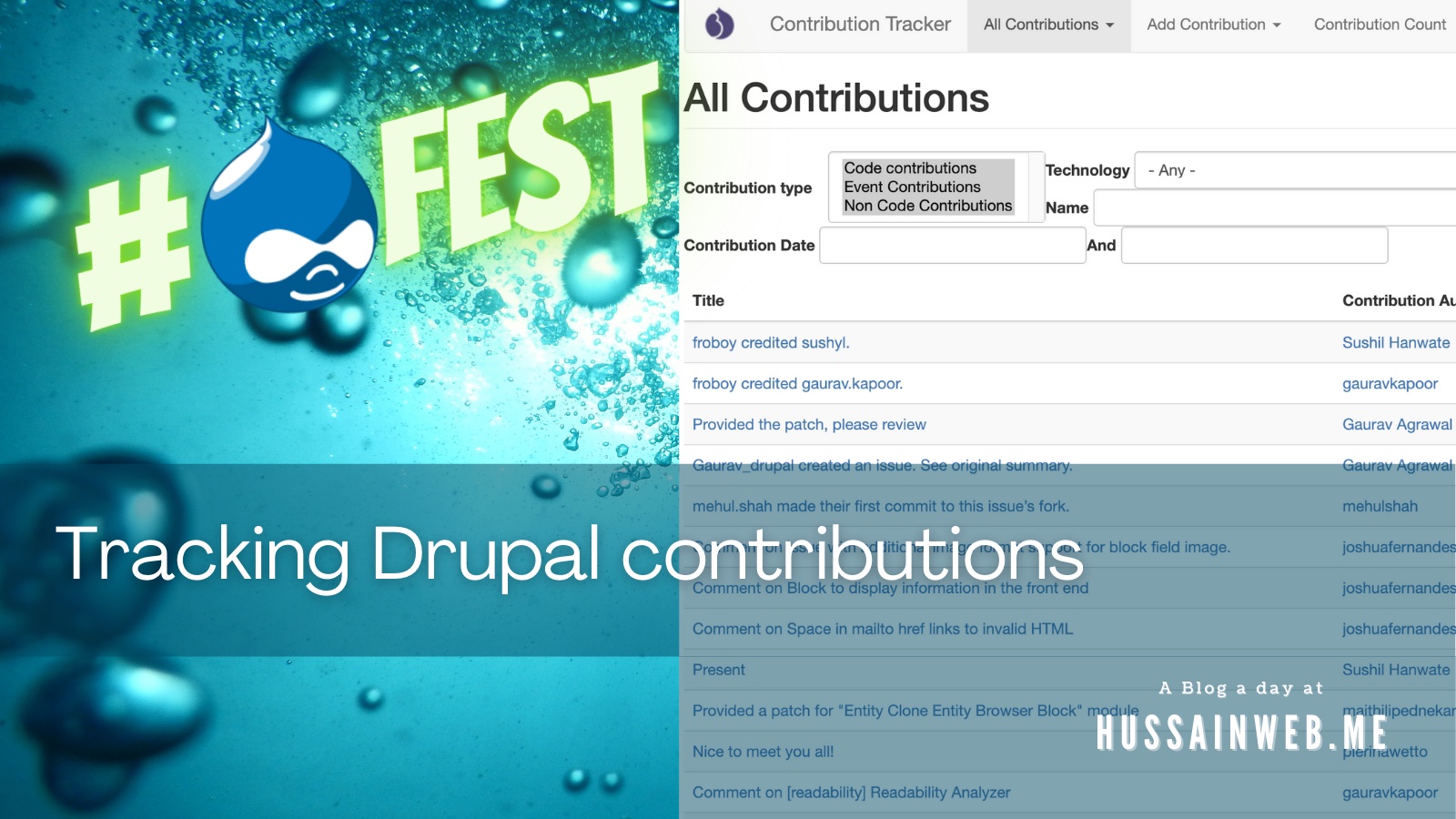
We at Axelerant have been contributing to Drupal in our own ways since a long time. In fact, I worked as a full-time contributor to Drupal a few months after I joined. This was around the time Drupal 8 was almost done and it is thanks to Axelerant I could contribute what I could at…